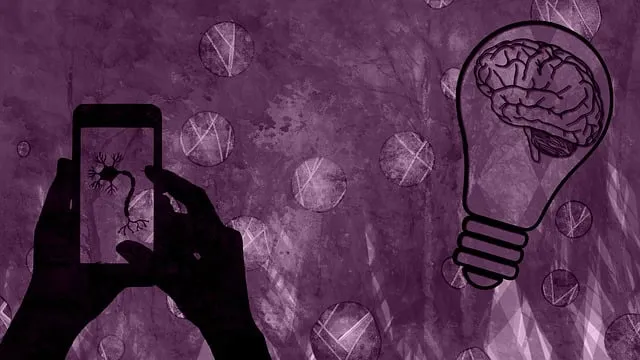The Kaiser Permanente Mental Health Access Center in Aurora plays a vital role in enhancing community well-being through its comprehensive Crisis Intervention Team (CIT) training programs. These programs equip individuals from diverse backgrounds with essential skills to manage crises, de-escalate situations, and promote emotional well-being. By focusing on empathy, cultural sensitivity, and stigma reduction, CIT members become more effective in supporting those facing mental health challenges. Through regular training and continuous learning, these initiatives not only improve patient outcomes but also foster a culture of care and resilience within communities, ultimately benefiting everyone served by the center.
“Crisis intervention teams (CITs) are essential resources in mental health care, providing immediate support during acute crises. This article explores the critical role of organizations like Kaiser Permanente Mental Health Access Center Aurora in training these teams effectively. We delve into key components, benefits, and implementation strategies, highlighting how comprehensive CIT training programs enhance community well-being. By focusing on evidence-based practices, we aim to showcase the impact of centers such as Aurora in fostering resilient communities.”
- Understanding Crisis Intervention Teams: A Vital Resource in Mental Health Care
- The Role of Kaiser Permanente Mental Health Access Center Aurora in Training Programs
- Key Components of Effective Crisis Intervention Team Training
- Benefits and Impact on Community Well-being
- Implementing and Sustaining Crisis Intervention Team Training Programs
Understanding Crisis Intervention Teams: A Vital Resource in Mental Health Care

Crisis Intervention Teams (CITs) are a vital resource in mental health care, providing swift and specialized support to individuals experiencing severe emotional distress. These teams, often composed of healthcare professionals from various disciplines, are trained to assess and de-escalate crises effectively. At the Kaiser Permanente Mental Health Access Center in Aurora, for instance, CIT training programs empower healthcare providers with essential skills in emotional well-being promotion techniques, conflict resolution techniques, and cultural competency training. This comprehensive approach ensures that patients receive care tailored to their unique needs, fostering a safer and more supportive environment.
The significance of CITs lies not only in their ability to resolve acute crises but also in preventing escalation and promoting recovery. By integrating these teams into mental health services, healthcare organizations like Kaiser Permanente can better address the complex needs of individuals in crisis, ultimately improving patient outcomes and enhancing overall community well-being.
The Role of Kaiser Permanente Mental Health Access Center Aurora in Training Programs

The Kaiser Permanente Mental Health Access Center Aurora plays a pivotal role in fostering mental well-being and crisis intervention within the community. This renowned center has made significant strides in developing comprehensive training programs that equip individuals with essential tools for managing stress and improving communication strategies. Through their expert-led initiatives, they offer a range of workshops designed to enhance resilience against life’s challenges, focusing on both personal growth and professional development.
By leveraging its resources, the Mental Health Access Center Aurora ensures these training sessions are accessible and tailored to diverse audiences, including healthcare professionals, educators, and community leaders. The center’s commitment to knowledge-sharing promotes a culture of care, enabling participants to effectively navigate crisis situations with empathy and proficiency. This holistic approach to stress management and communication strategies empowers individuals to create supportive environments, ultimately contributing to a healthier and more resilient society.
Key Components of Effective Crisis Intervention Team Training

Effective crisis intervention team (CIT) training programs are multifaceted, encompassing various critical elements to prepare teams for real-world scenarios. One such renowned program is offered by the Kaiser Permanente Mental Health Access Center in Aurora, Colorado. This center emphasizes a holistic approach, focusing on both technical skills and interpersonal dynamics. The training starts with foundational knowledge about different types of crises, including mental health emergencies, substance abuse incidents, and domestic disputes. It then delves into essential skills like active listening, de-escalation techniques, and crisis assessment strategies.
A key component is the emphasis on empathy building strategies, teaching participants to recognize and respect individual experiences and perspectives. Cultural sensitivity in mental healthcare practice is another vital aspect, ensuring that CIT members can navigate diverse cultural backgrounds and beliefs during high-stress situations. Additionally, these programs often incorporate mental illness stigma reduction efforts, aiming to foster an environment of understanding and compassion for individuals facing psychiatric challenges.
Benefits and Impact on Community Well-being

Crisis intervention team training programs play a pivotal role in enhancing community well-being by empowering individuals to handle mental health crises effectively. Organizations like Kaiser Permanente’s mental health access center in Aurora have recognized this need and implemented such initiatives. These programs not only equip participants with essential skills but also foster a culture of care and support within communities.
By training crisis intervention teams, communities can better navigate situations involving mental health emergencies. This includes adopting Compassion Cultivation Practices and Empathy Building Strategies that promote emotional well-being promotion techniques. Such interventions have been shown to reduce the impact of trauma, improve coping mechanisms, and enhance overall community resilience. Through these programs, individuals learn to recognize signs of distress, offer immediate support, and de-escalate potentially dangerous situations, ultimately leading to improved mental health outcomes for all members of the community.
Implementing and Sustaining Crisis Intervention Team Training Programs

Implementing and Sustaining Crisis Intervention Team Training Programs requires a concerted effort from all stakeholders involved, including mental health professionals, healthcare administrators, and community leaders. At the Kaiser Permanente Mental Health Access Center in Aurora, for instance, these programs have been meticulously designed to equip employees with the necessary skills to handle crises effectively, fostering an environment that promotes inner strength development and depression prevention.
Regular training sessions focused on stress management techniques are integrated into the program curriculum, ensuring that team members not only know how to respond during a crisis but also possess the tools to maintain resilience over time. By prioritizing continuous learning and adaptation, these programs aim to sustain their effectiveness, benefiting both the individuals within the organization and the broader community they serve.
Crisis intervention team (CIT) training programs, such as those offered by the Kaiser Permanente Mental Health Access Center Aurora, are invaluable assets in enhancing community well-being. By equipping individuals with the necessary skills and knowledge, these programs play a pivotal role in improving mental health care outcomes. The key components highlighted in this article—including comprehensive curriculum, real-world simulations, and ongoing support—are essential for effective CIT training. As demonstrated by the successful impact on communities, investing in such initiatives can lead to profound positive changes, ensuring better preparedness to handle crises and ultimately fostering healthier environments.






